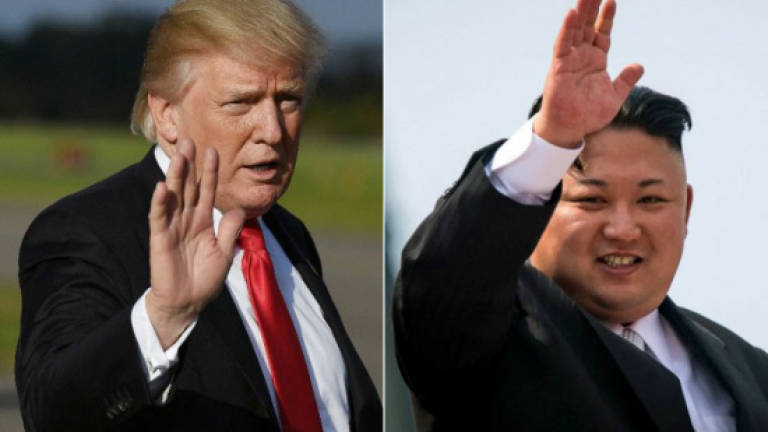New US sanctions on North Korea ships, Chinese traders

WASHINGTON: The United States on Tuesday unveiled new sanctions targeting North Korean shipping and Chinese traders doing business with Pyongyang, again raising the pressure on the pariah state to abandon its nuclear program.
The measures came a day after President Donald Trump declared North Korea a state sponsor of terrorism, a spot on a US blacklist Pyongyang had shed nearly a decade ago.
"These designations include companies that have engaged in trade with North Korea cumulatively worth hundreds of millions of dollars," US Treasury Secretary Steven Mnuchin said.
"We are also sanctioning the shipping and transportation companies, and their vessels, that facilitate North Korea's trade and its deceptive maneuvers."
On Monday, Trump had said the sanctions announcement would be the first in a series of moves over the next two weeks that would reinforce his "maximum pressure campaign" against Kim Jong-Un's regime.
As had been expected, the Treasury measures make use of existing US directives against North Korean trade, but expand their scope to take in more companies and individuals.
Most importantly, they expand the list of Chinese firms accused of doing business with the North despite promises from Beijing that it will honor UN-backed punitive measures.
Trump met China's President Xi Jinping earlier this month and is bullish about the US-China relationship, but concerns remain that Beijing is not ready to take tough measures against Kim.
More should be done
In particular, China has been reluctant to cut off oil supplies through a pipeline to North Korea's lone refinery, fearing that regime collapse could lead to chaos on their common border.
And, according to US officials, some Chinese-based banks and trading firms continue to do business with the North in defiance of UN sanctions and US threats of unilateral measures.
"We still hope all relevant parties can contribute to easing tensions," Chinese foreign ministry spokesman Lu Kang said Tuesday, after the US terror designation.
"More should be done in that regard," he added.
China has pushed for a "dual track approach" which would see the United States freeze its military drills in South Korea while North Korea would halt its weapons programs.
Washington has rejected that approach.
According to Mnuchin, the sanctions would not only increase Pyongyang's isolation but also expose "its evasive tactics."
In all, the new measures add one individual, 13 trading entities and 20 ships to US sanctions lists.
Any property or assets of the firms involved that are found to be in areas under US jurisdiction are to be frozen, and Americans are banned from trading with them.
Three Chinese firms – Dandong Kehua Economy and Trade, Dandong Xianghe Trading Company and Dandong Hongda Trade – are said to have sold computers, minerals and ore to North Korea.
Chinese businessman Sun Sidong and his company Dandong Dongyuan Industrial are accused of exporting vehicles, machinery, radio navigation and "items associated with nuclear reactors."
A woman who answered the phone at the company said it was not doing business with North Korea and suggested that the firm had halted its operations.
"We are not operating," she said.
Another woman at Dandong Kehua Economy and Trade denied knowing about the sanctions.
"We have temporarily suspended (trading)," she said.
In addition to slapping sanctions on the firms and North Korean ships, the Treasury added the Korea South-South Cooperation Corporation to its sanctions list.
The firm is alleged to have sent North Korea guest workers to China, Russia, Cambodia and Poland. Foreign workers are a major source of income to the regime.
The White House has said it will not tolerate the North's testing or deployment of an intercontinental ballistic missile capable of carrying a nuclear warhead to US cities.
Experts believe Pyongyang is within months of such a threshold, having carried out six nuclear tests since 2006 and test-fired several types of missiles, including multi-stage rockets.
Both Trump and Kim have previously raised fears of open conflict as they exchanged insults and threats of devastating military strikes.
But US officials say their main goal is for Pyongyang to back down, in the face of what they now hope will be inexorable Chinese-backed economic and diplomatic pressure, and agree to discuss disarmament. — AFP